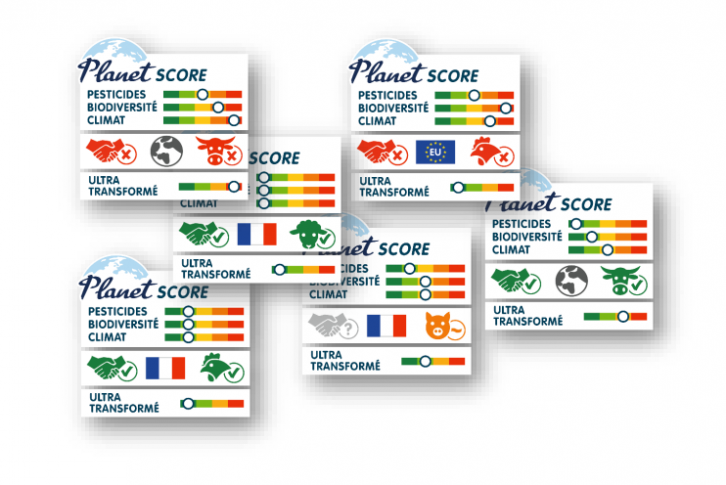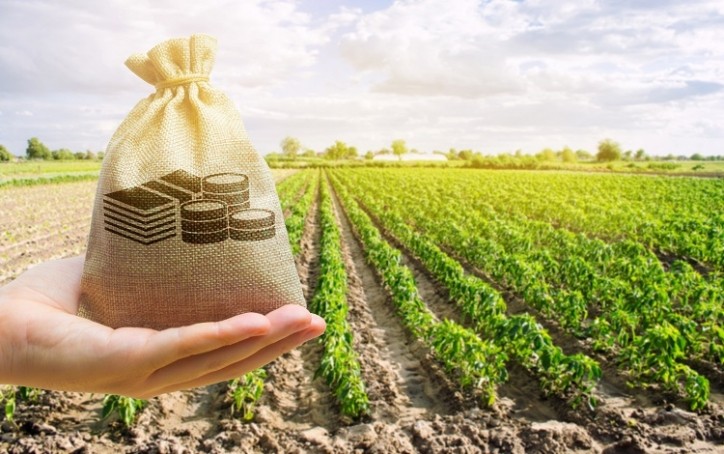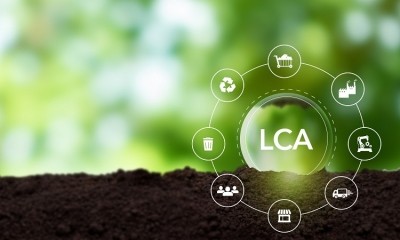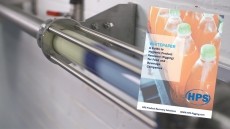Ultra-processing metric added to environmental labelling scheme: ‘Our objective is to identify products with synthetic additives’

After two years on the market, environmental labelling scheme Planet-Score is looking to the ‘next stage’ to improve the transparency of products on-shelf.
This newest iteration continues to rate products according to their environmental impacts and methods of production, but also indicates details around the product’s degree of processing, origin, and whether fair remuneration was paid to its producers.
Consumers are often looking for more information than that provided by France’s official voluntary nutrition labelling scheme Nutri-Score, a Planet-Score spokesperson told this publication. “Consumers are interested by the origin of products, and fair treatment to farmers.”
The Planet-Score evolution
Planet-Score was developed in 2021 in France by Organic Food and Farming Institute (ITAB), research organisation Sayari, and consumer focused-research Very Good Future.
Its aim is to differentiate environmental impacts between different categories of products (for example a meat product vs an apple), as well as within categories (for example between different varieties of apples) according to their differing production methods.
The scheme uses life cycle assessment (LCA) methodology, but Planet-Score aims to set itself apart by addressing other elements associated with sustainability, notably: pesticides, climate, biodiversity and animal welfare. These four elements, according to Planet-Score, are either covered minimally, poorly, or not at all in LCA analyses.
The result is a composite format that presents these four indicators as well as an aggregated score.

Now, three more indicators are being added to the label for brands that want to use them: the degree of processing, origin of product, and whether farmers have been fairly remunerated for their raw materials.
Too few companies are transparent about these indicators, according to Planet-Score, and while some are working in a ‘genuinely positive way’, it’s difficult for consumers to ‘find their way through the current proliferation of disparate claims’.
Measuring degree of processing
To measure the new indicators, Planet-Score scans label and commitments made by food and beverage manufacturers. Early adopters include poultry cooperative Fermiers de Loué, online grocery platform Omie & Cie, and organic retailer Biocoop.
With regards to the degree of processing, Planet-Score turns to, in part, the most widely used system to assess food processing: the NOVA classification system. Developed in 2009, the NOVA system splits levels of food processing into four classifications, from raw and minimally processed foods; to processed culinary ingredients; processed foods; and ultra-processed foods.
“We use NOVA as part of the classification, but not alone or by itself,” explained the Planet-Score spokesperson. “Our main objective is to identify – in a snapshot – products with synthetic additives, especially those additives which are linked to public health issues in scientific publications. And products with a high degree of processing/degradation and artificialisation of food matrices, with again clear public health scientific signals on that dimension."

Assessing fair remuneration to farmers is done by verifying certification schemes across the Global North and South.
And assessing country of origin is done according to whether the product is plant-based or animal-derived. For plant-based products, Planet-Score is concerned by where the product was made; for animal-derived products, Planet-Score takes both its origin of production and origin of feed into account.
“As a whole, our team and stakeholders think that sustainability is a holistic story: we can’t hope for a real transition if we are not able to bring transparency on all major issues of the food sector.”















